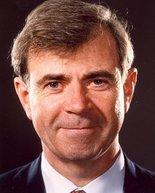AARP Hearing Center

In 1994, Sec. William Francis Galvin was elected as Secretary of the Commonwealth of Massachusetts, the state’s top third constitutional office, where he has served ever since. The 28th elected secretary in the Commonwealth’s history, Galvin serves as the state’s elections officer, and is one of the top election law specialists in the state. With a special primary election and special state election coming up soon in the Fifth Congressional District of the state, we posed "3 Questions" to Sec. Galvin about elections, special elections…and voter fatigue.
1. Sec. Galvin, are you concerned that “voter fatigue” may adversely affect the turnout for the Congressional District 5 Special State Primary Election and Special State Election, as well as for other special elections coming up across the state?
Turnout is always a concern with a special primary and special election, but this primary has a number of active campaigns that have the potential to bring people to the polls. Also, voters may not be that fatigued. Although there have been 16 primary and general special elections so far in 2013, the only other special elections in the communities of the 5th District this year were the primary and general one for U.S. Senate.
2. During the special election for U.S. Senate held in June, a few media outlets quoted you as saying that voter turnout might be low due to competing public interests, i.e. the Boston Bruins competing in the Stanley Cup, the Bulger trial, and the end of the school year. Aside from the upcoming holidays, what might compete with voters’ attention in October for the Special State Primary Election and in December for the Special State Election?
Unlike the special Senate election in June, the October 15 primary for the 5th District is closer to the usual November date when people are accustomed to going to the polls. For the general election on December 10, the holiday season will be full upon us then, but the state law on filling vacancies in Congress did not allow much leeway on when the election could be held.
3. Finally, what would your response be to those who say “Why bother? My vote doesn't matter anyway, especially in all of these special elections…”?
It is rare [that one vote could make a difference]. But one vote has been the margin of victory here in Massachusetts - the election of Brockton's mayor in 1979, the election of a Melrose mayor in 2001. Even a governor was once elected with only a vote to spare. One less vote in 1839 and Democrat Marcus Morton would not have had a majority which was the requirement at the time, and the election would have gone to the General Court where the rival Whig party was in control. Especially with spirited campaigns in multi-candidate fields, your vote does matter so take the opportunity to vote.
Do you have someone you'd like us to ask 3 Questions? Email us at ma@aarp.org or call us at 866-448-3621, and let us know!































































